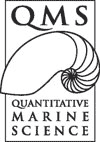
Marine Environment Prediction utilises advanced skills to make physical, biological or chemical marine science increasingly predictive and quantitative. New ocean observing systems, numerical models and advanced approaches to model-data assimilation are leading to research projects in ocean-circulation modelling, estimation of the physical state of the ocean, down-scaling to coastal environments, biogeochemical and ecosystem-modelling and new applications in interdisciplinary sciences such as fishery oceanography and ecosystem-management.
Climate Variability and Resource Management employs skills that allow economic sectors to respond efficiently to climate variability by providing useful predictions based on understanding ocean processes. This project builds on CMR's Oceans to Farms project and capabilities within the University, developing skills in statistical and dynamical methods of climate prediction and targeting predictions for specific economic management decisions in both terrestrial and marine environments.
Climate and Ecosystems examines ocean processes at basin-wide scales, the role of ocean processes in climate change and the influence of oceanic environment on large marine ecosystems. This area links into ACE CRC research, with a focus on delivering environmental, economic and social value from Australia's engagement in Antarctica, and developing research skills on the dynamics of the role of oceans in the climate system and feedback from ecosystems to the climate system.
Environmental Conservation and Management provides the quantitative decision tools and processes to enable Australia to effectively manage marine biodiversity, ecosystem function and use of marine resources. This area aims to train researchers and managers to use tools to 'see' and understand environmental problems at the systems level. Specific components will include habitat and spatial dynamics, population dynamics, the science of fisheries management, environmental risk assessment; management strategy evaluation and ecological economics.
Understanding Socio-Ecological Systems Working closely with the newly established Centre for Marine Socio-ecology, the focus here is to increase the capability for a trans-disciplinary approach to research across complex biophysical and human systems to sustain industries,ecosystems, livelihoods and communities. It includes diverse disciplines including modelling,economics, sociology, policy and law.
Marine Technology and Engineering focuses on the development of technology, tools and techniques to better observe marine systems. This includes design and analysis of marine sensors using novel materials, image processing and automated classification, underwater visual systems, and the development of techniques to extract enhanced information from instruments, such as multibeam echosounders.